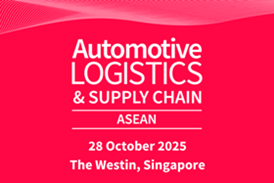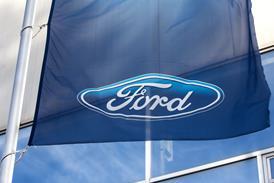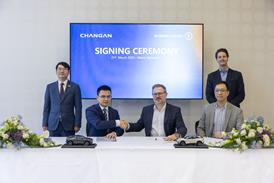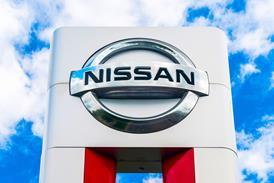
Despite rising oil prices, unrest in North Africa and the Middle East, and economic instability in several major European markets, the Naples-based shipping company Grimaldi Group has seen a remarkable growth in profits during the first months of 2011, led in particular by its three Italian-incorporated companies, according to Emanuele Grimaldi, co-chairman of the group and managing director for short sea operations (pictured). The company has benefited from strong automotive and ro-ro trade as well as improvements in operating costs thanks to the efficiency of newer vessels.
In an interview at Grimaldi’s headquarters in Naples, Mr Grimaldi revealed that the group’s early results for 2011 are so far “excellent beyond expectation” and even so good as to be considered “strange”. Each of the first three months of the year have seen increases in profit of at least €10m ($14.6m) more per month compared to 2010, he said, a result that, should it continue, would mean an annual increase in profit of more than 100%. In 2010 the group had revenue of about €2.3 billion and consolidated profits of around €100m across its six companies.
Mr Grimaldi admits that he wouldn’t have predicted such a result this year given the disturbances in important trade lanes in North Africa or the economic downgrading of key Grimaldi markets, including Ireland, Spain, Portugal and Greece. Furthermore, while rising oil prices are hiking up costs, rates have not risen, he said. It is a scenario that has left numerous shipping lines and logistics companies reeling. The European Association of Vehicle Logistics estimates that the added cost from rising oil costs to the European vehicle logistics shipping industry has been more than €35m each month compared to July 2010.
Automotive backbone
But the surprising success has been down more to improvements in Grimaldi’s core business rather than chance or la fortuna, including ro-ro and automotive cargo between North and South Europe, rising imports to Russia and other oil producing countries such as Nigeria and Angola, as well as deep sea growth to North and South America. Automotive is playing an important role, Mr Grimaldi said.
“Carmakers are the backbone of our business services. For [our Italian companies in] Naples, automotive is the biggest operation, and we are particularly strong with Ford, Fiat and GM,” he said. “Finnlines is also growing tremendously [for automotive],” he said.
While cargo service continues to be disrupted in ports in Tunisia and Syria, with Libyan services largely knocked out, Grimaldi has had its vessels chartered by governments to evacuate stranded citizens from the troubled regions. Thus far ships carrying up to 5,000 people have been chartered by China and the US, for example, as well as for Syria and Egypt. While these charters are not the reason for the higher profits, they have helped to offset the loss in freight cargo in the region, said Mr Grimaldi.
Naples leads the growth
But the growth and profits have not been measured out in equal terms across the group. Most of the profit is earned by Grimaldi’s three family-owned, Italian incorporated companies, referred to as “Naples” within the group–deep-sea operator Grimaldi Compagnia di Navigazione, short sea operator Atlantica di Navigazione, and Inarme, which provides ships to the other two companies.
The group has also acquired three stock-listed companies in recent years, each of which have struggled during the downturn: the Baltic operator Finnlines, deep-sea operator Atlantic Container Lines (ACL), and the Greek ferry operator, Minoan Lines.
The Italian companies have historically been the strongest performers, with a network spanning the Mediterranean, Northern Europe, West Africa and the Americas that moves a healthy mix of vehicles, ro-ro and passengers. Even during the crisis years, Naples stayed in “the very serious black,” according to Mr Grimaldi. While the Naples companies are private and do not publish financial results, they have never registered a single quarter of loss in their history, he said.
In 2010, the three companies had revenues of €1.2 billion, with profits of €192m, earnings almost double that of the group on nearly half the revenue. The profit split across the three was €66m for Grimaldi, €66m for Inarme and €59m for Atlantica.
While ACL and Finnlines saw losses in 2009, both turned back to small operating profits in 2010. Minoan Lines lost nearly €40m.
For 2011, it is again the Naples core that is most profitable. According to Mr Grimaldi, ACL is now performing well thanks to a stronger Atlantic trade and will improve profits this year. Finnlines, which he took over management of himself during a significant restructuring the past two years, has benefited from strong imports to Russia, but registered a loss in the first quarter as a result of rising costs and stevedoring strikes in the Baltic. Mr Grimaldi nevertheless predicts it will remain profitable for 2011. Minoan, while improving and outperforming its Greek competitors, continues to struggle. Mr Grimaldi says he has put aside “huge reserves” to weather it through recovery in the Greek economy.
Mr Grimaldi credits the success of the Naples companies to the tight management inherited from his father, Guido Grimaldi, who was chairman until his death last autumn. Naples remains a family-run business: Mr Grimaldi’s brother, Gianluca, is co-chairman and responsible for deep sea, while his brother-in-law, Diego Pacella, is finance director. Their management has left the company with a healthy balance sheet. Capital reserves have increased from €1.7 billion in 2008 to €2.4 billion last year; Grimaldi also continues to withhold a dividend.
Scrap the old, in with the new
Instead, the management has focused on IT investment and the deployment of newer, more efficient vessels. The group has an order book of 25 new ships, about half of which have already been delivered, with the rest arriving in the next two years. The most recent ships have capacity for 1,000 cars, as well as more than 2,000 lane metres for ro-ro traffic.
“These ships have been above my expectations in terms of efficiency, and those added to our fleet for both short sea and deep sea are consuming less energy with a higher productivity,” Mr Grimaldi said. “The costs, except for the financing, are significantly lower.”
The group is also under negotiations to purchase the five biggest ro-ro vessels in the world to replace the fleet of ACL in 2012 and 2013.
In a mark of the company’s cautious management, despite all of the new vessels, the growth in net fleet size will only be about 5% as older ships are scrapped. Mr Grimaldi believes that in the current climate, with costs set to rise further and economic and automotive sales uncertain in Europe, companies must learn to do more with less. He believes in scrapping more inefficient, older ships in favour of fewer, newer ships, as he believes the ro-ro market still faces overcapacity.
“The worst thing is to cannibalise your own business,” he said.
This year, Grimaldi even chose to scrap a vessel that was only 18 years old, rather than pay €2m to repair its engine. His advice to other operators is not to cling on desperately to older vessels under the illusion of saving money.
“When you have a vessel that is 30 years old, how do you expect to remain competitive in 2-3 years, especially with the price of oil rising? Even if a light comes at the end of the tunnel [for the economy], it will not be for those ships.”




































